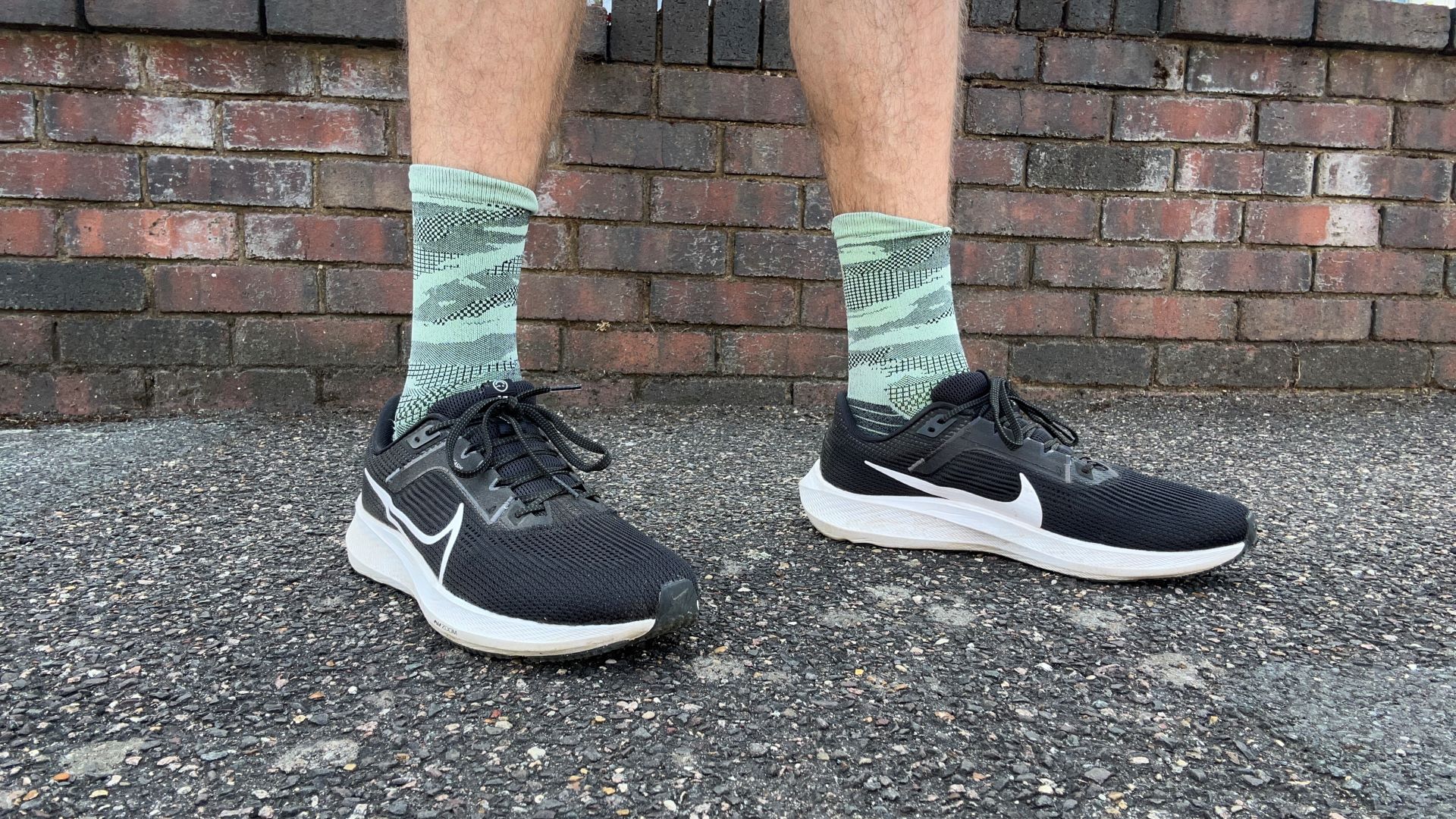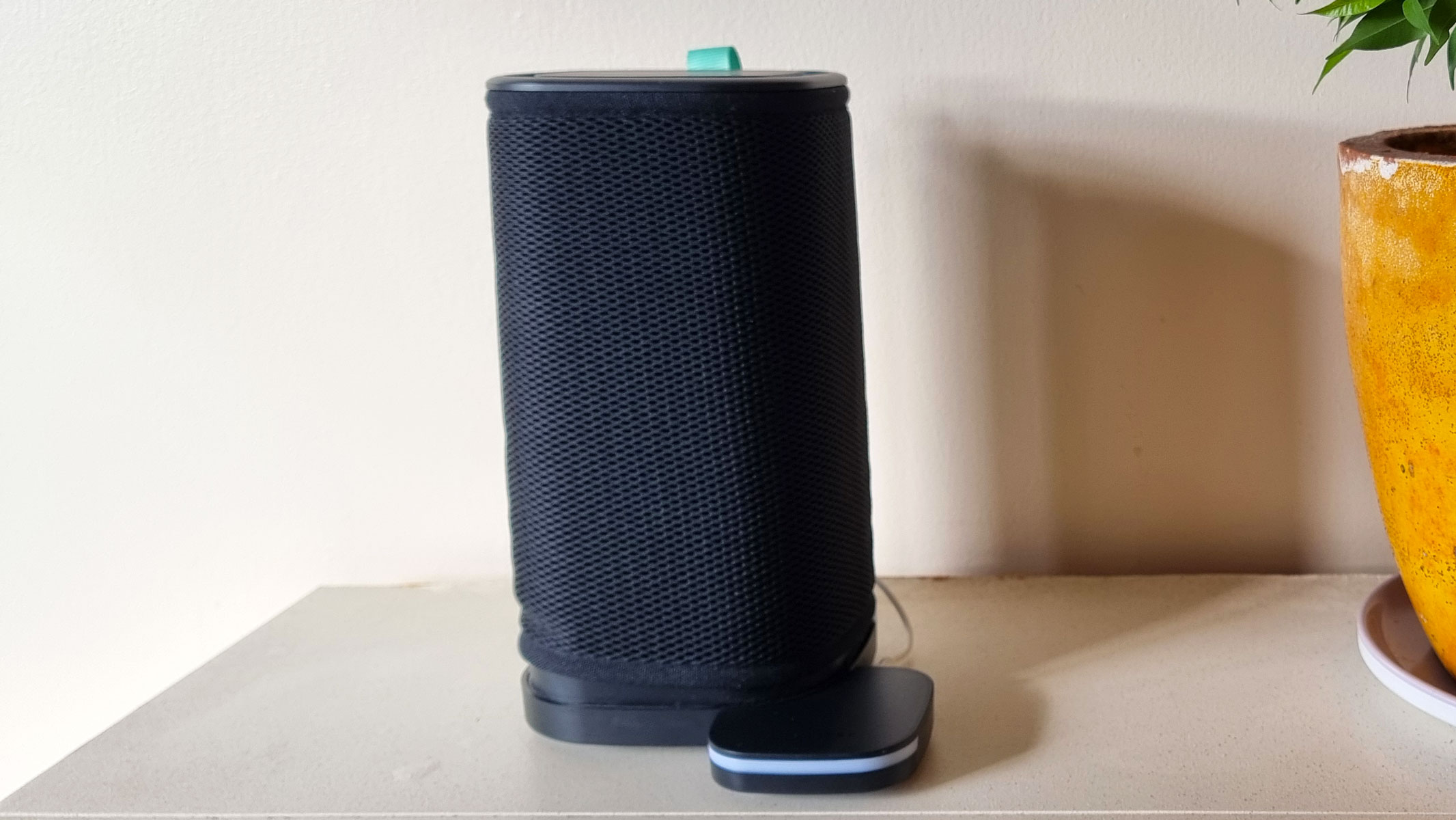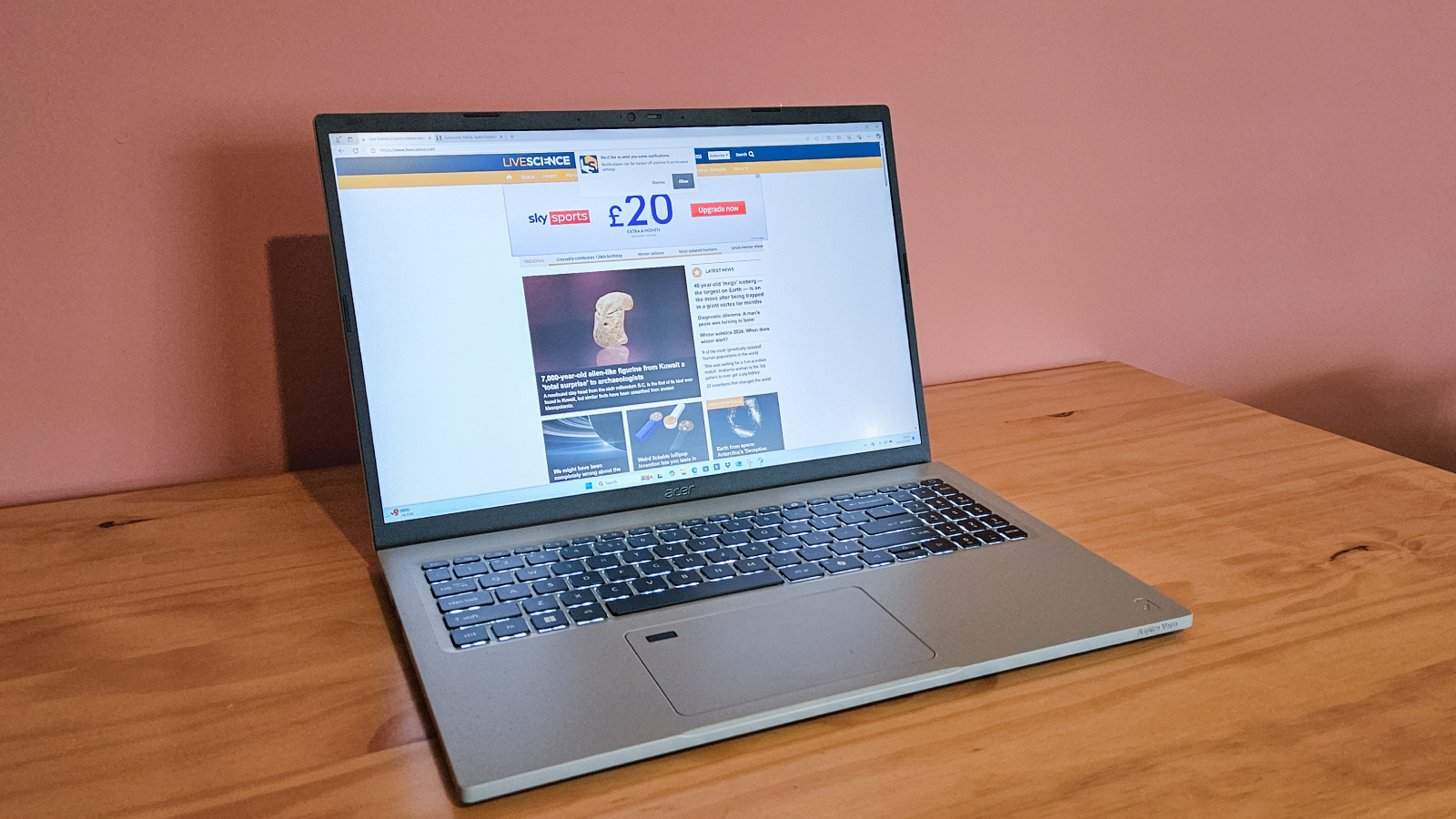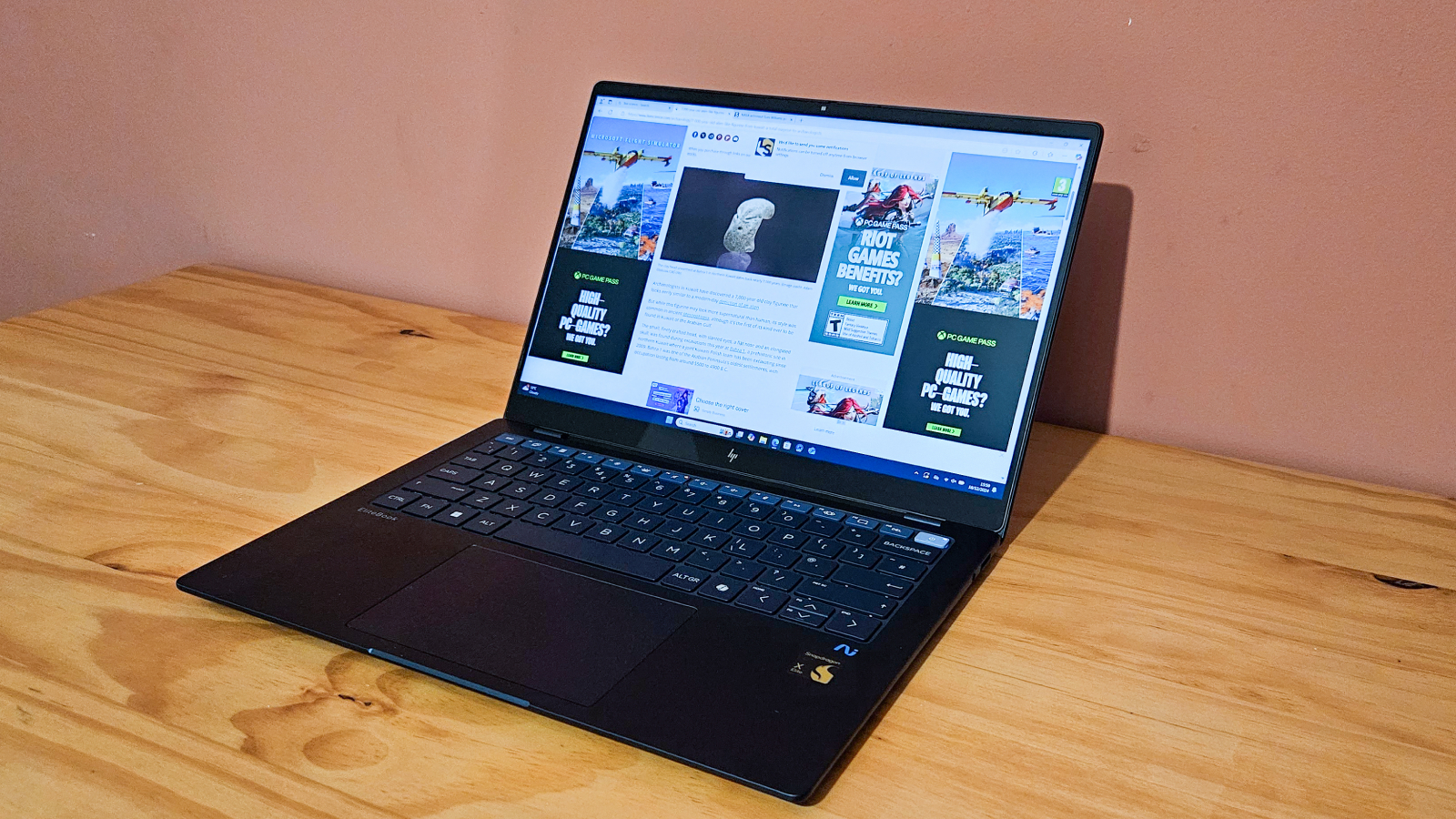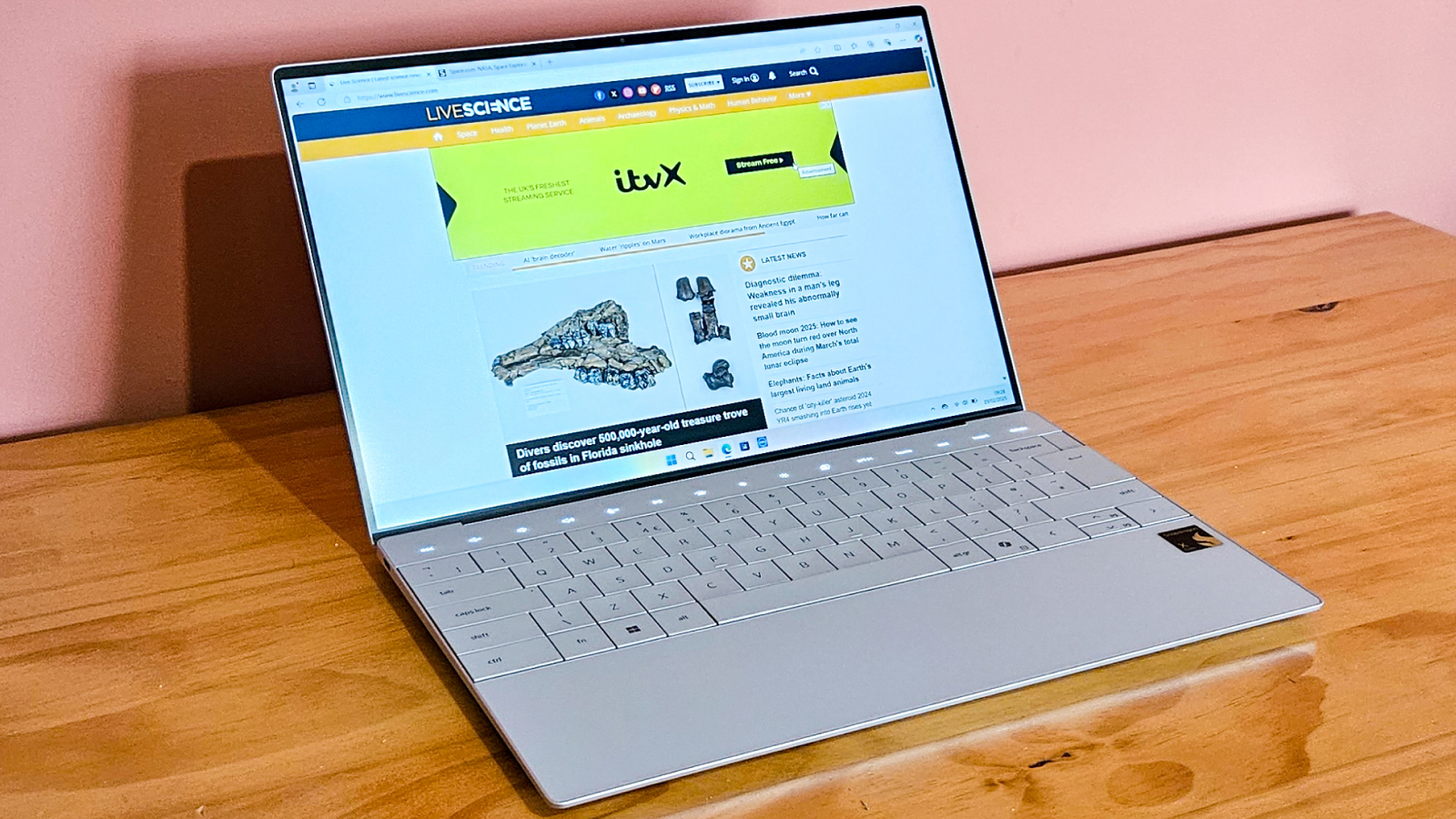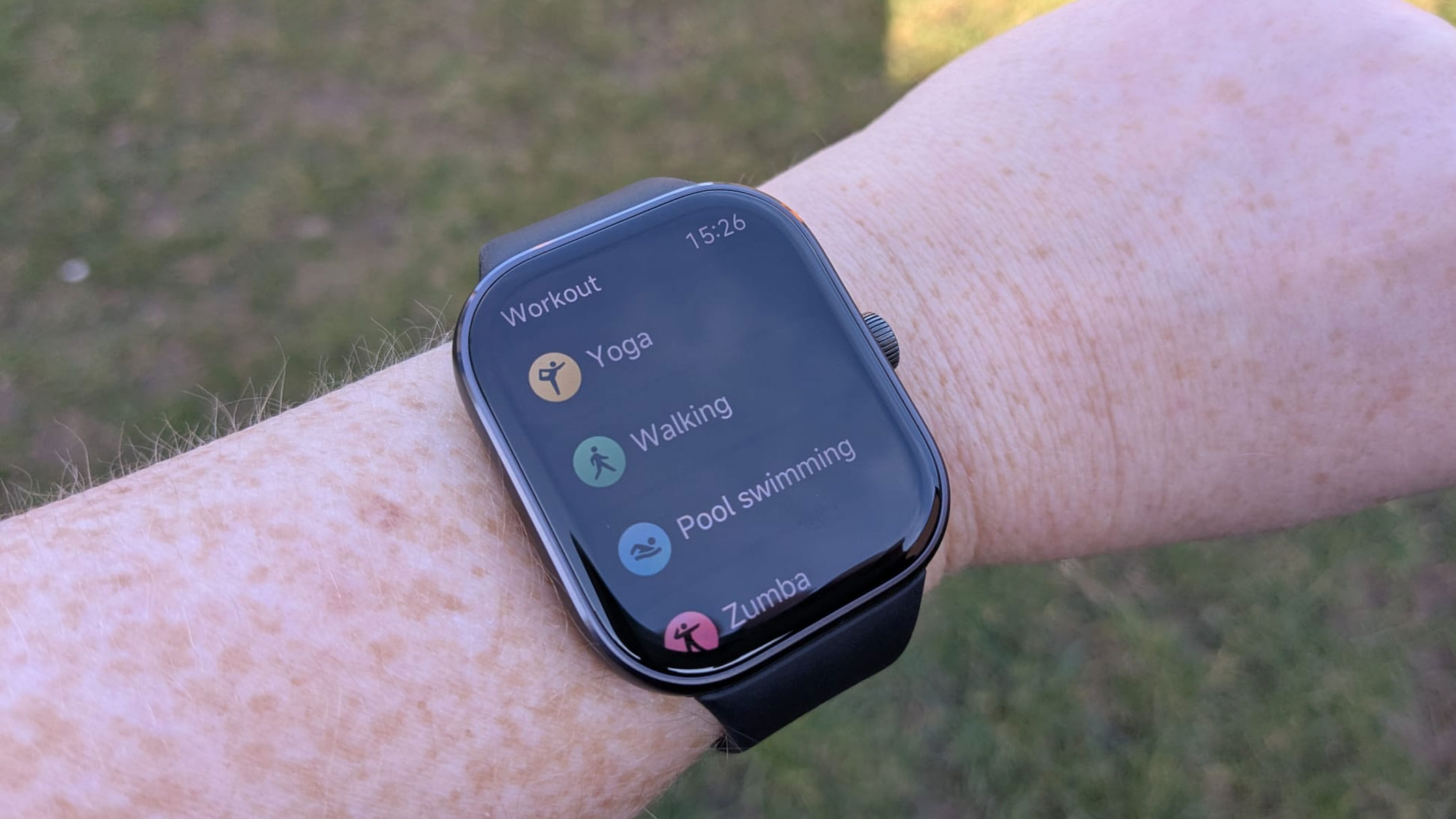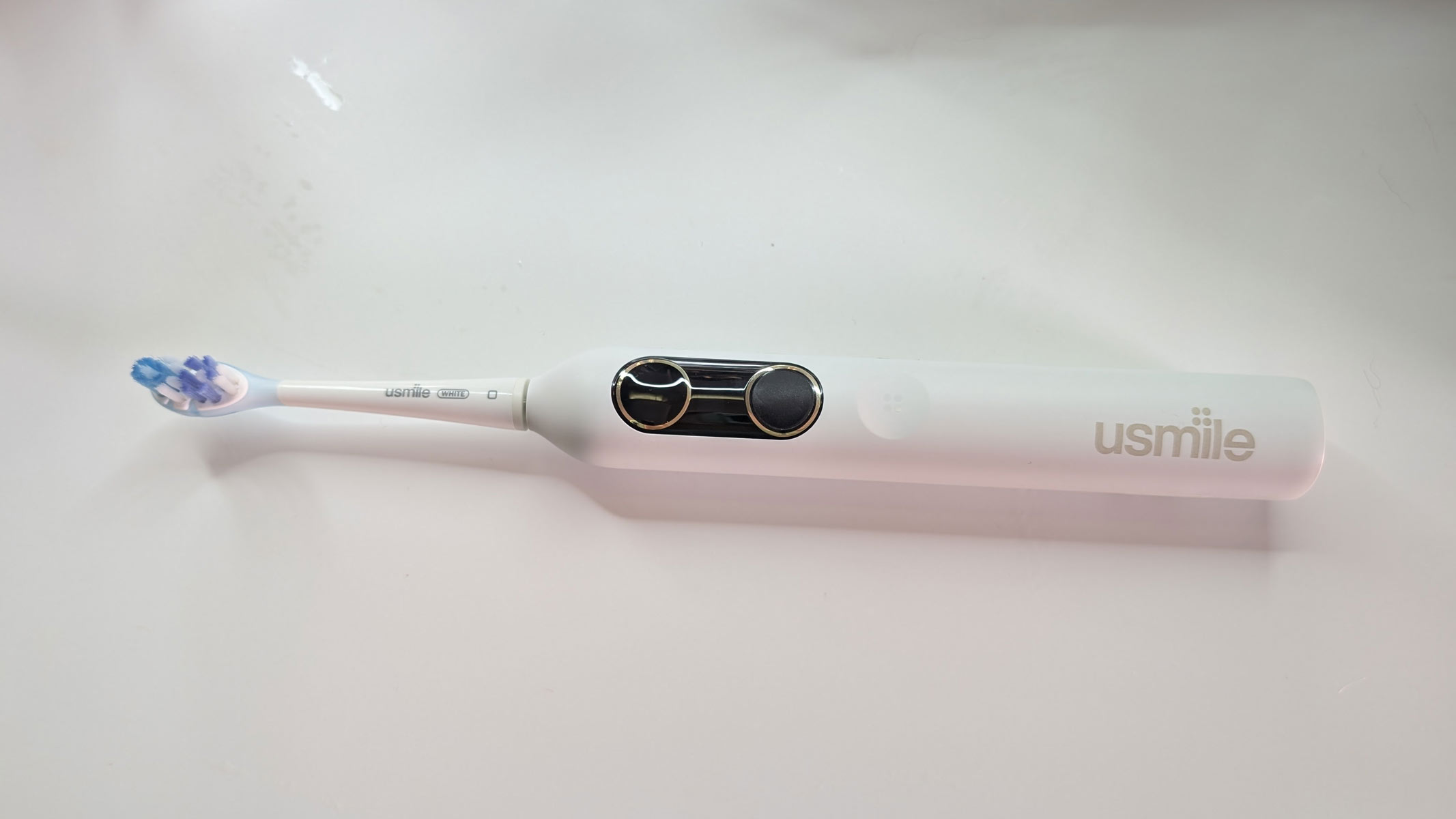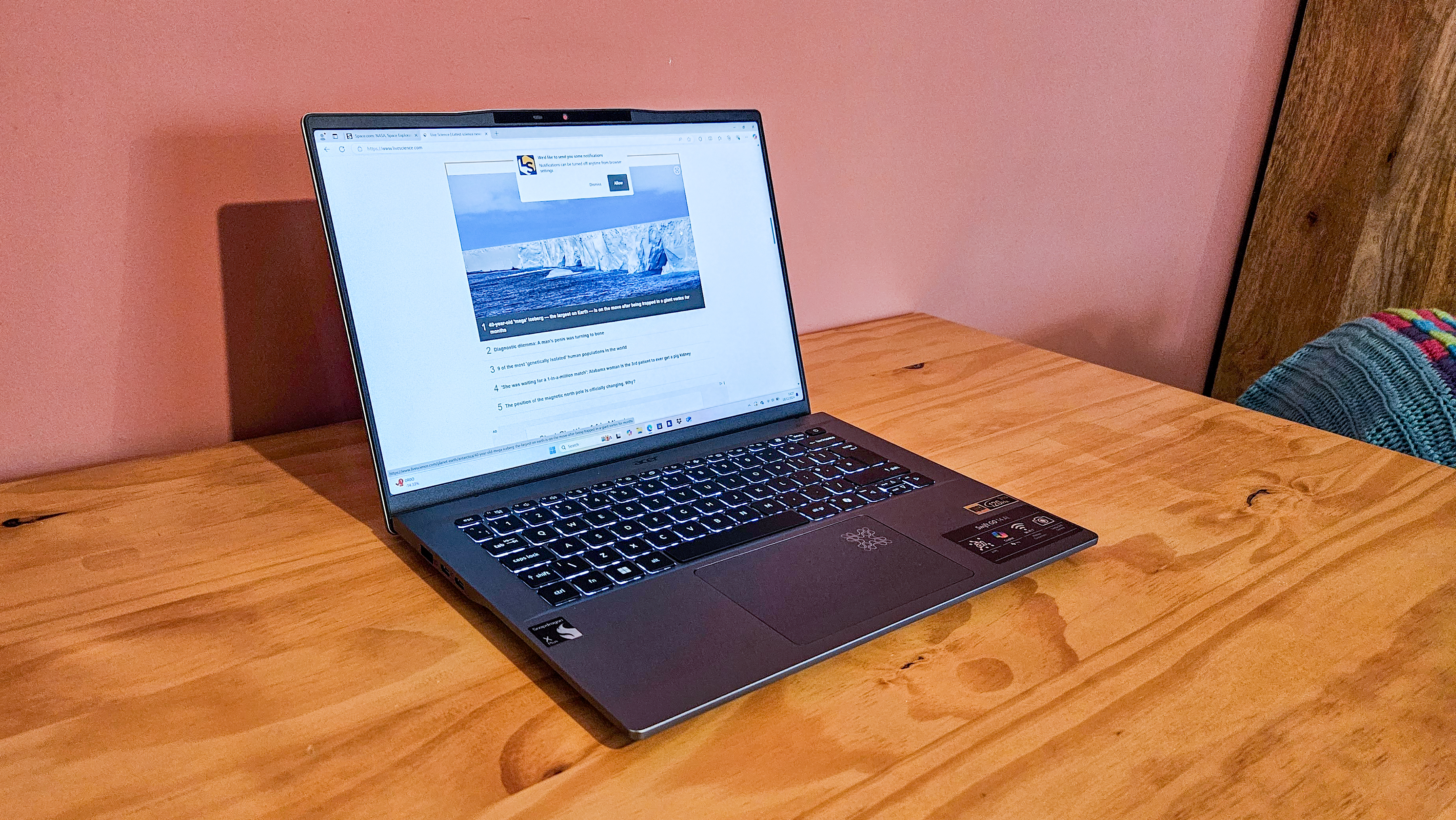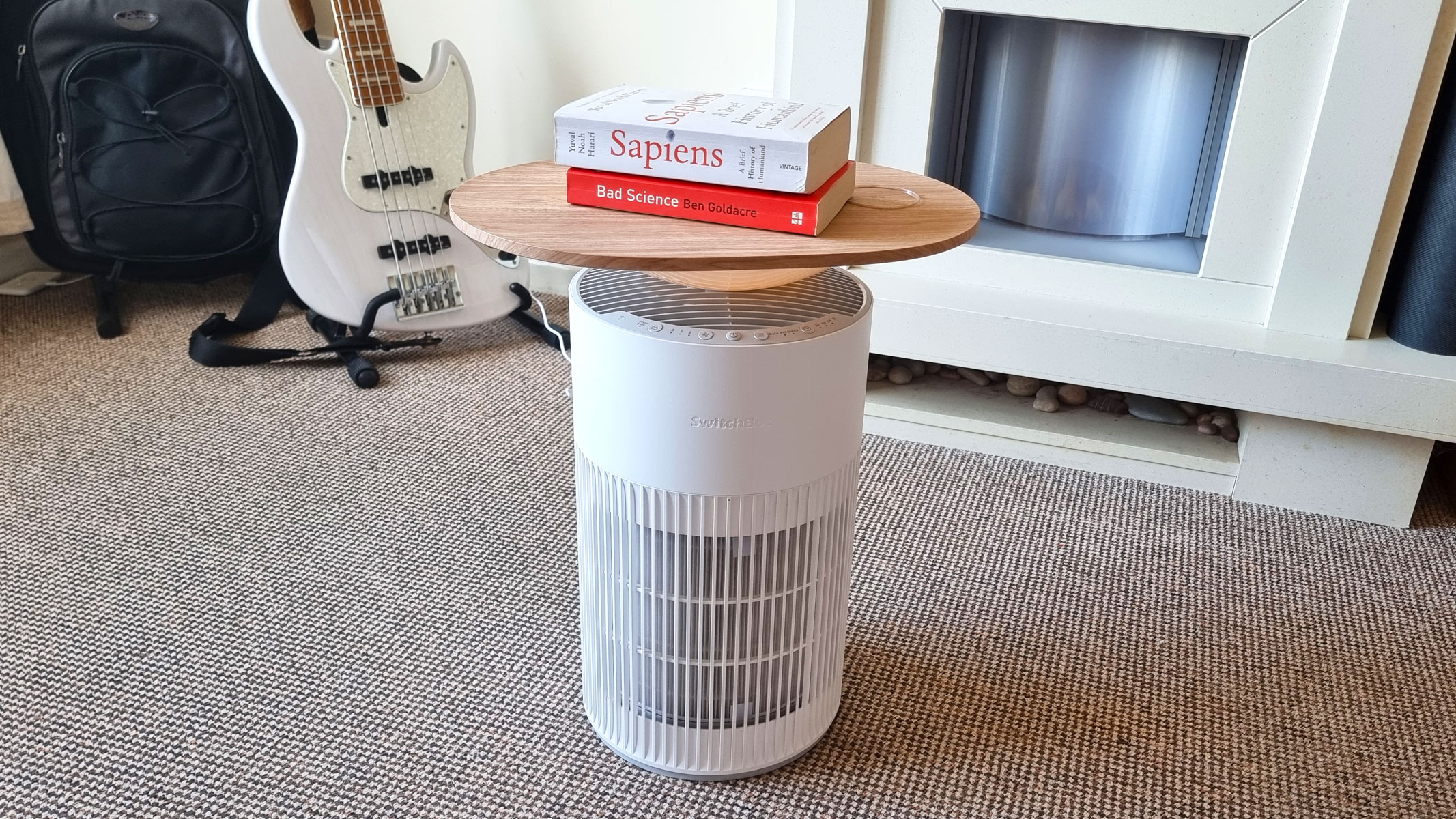Live Science Verdict
The Nike Pegasus 40 largely sticks to the same design as the Pegasus 39, which means it’s still a great running shoe, but there’s better value to be had in hunting down a deal on its predecessor.
Pros
- +
Comfortable and versatile
- +
Durable outsole that grips well
- +
Good value
Cons
- -
Lacks some pop for faster runs
- -
Pegasus 39 is cheaper and lighter
Why you can trust Live Science
You don’t get to 40 generations of a running shoe without doing something right, and the Nike Pegasus 40 mostly sticks to the blueprint of its immediate predecessor, with the changes made to the shoe being confined to the upper.
Underfoot the Nike Pegasus 40 is the same as the 39, with midsole foam that’s neither overly firm or excessively squishy and a durable outsole that grips well on light trails as well as the road.
RRP: $130/£114.95
Weight: 10.3oz/292g (US 10)
Drop: 10mm
Heel stack height: 33mm
Forefoot stack height: 23mm
The Pegasus 40 is a cushioned daily trainer that can handle a variety of runs, but is at its best for easy runs. It’s not as cushioned as some of the maximally-stacked shoes out there, such as the Nike Invincible 3, but the Pegasus 40 still protects the legs well while being light and nimble enough for faster efforts, even if it’s not an out-and-out speedster.
While the Nike Pegasus 40 is not an update that’s likely to create huge excitement, it retains the key characteristics of the Pegasus and works well as a versatile daily trainer, especially for newer runners. It’s also a pretty good value running shoe, which earned it a place in our guide to the best running shoes, especially as the Pegasus tends to pop up in sales not long after its launch.
The main cons with the Pegasus 40 are that it is so similar to the Pegasus 39, which is also a tad lighter and cheaper, especially as the older shoe will be in sales even more regularly now the 40 has launched. We’d recommend hunting down a deal on the 39 while it’s still available because that represents better value than buying the Pegasus 40.
Nike Pegasus 40: How we tested
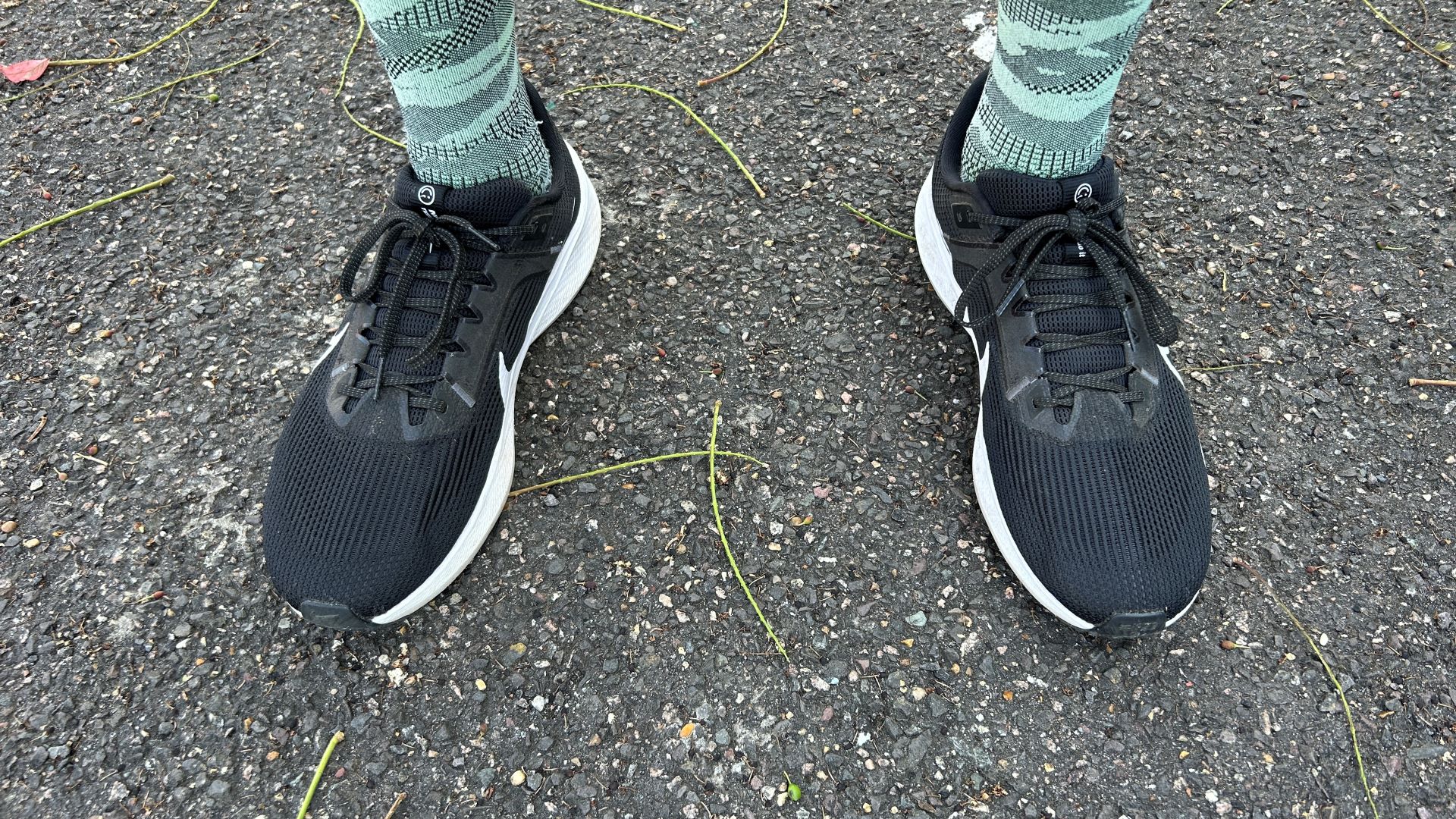
We’ve run over 30 miles in the Nike Pegasus 40, using it for a variety of runs including very easy recovery runs and speedier tempo efforts. Along with using the shoe on the road, we’ve taken the Pegasus 40 onto some light forest trails and a canal towpath since it grips well on those surfaces. We’ve also tested many past versions of the Pegasus, including every generation from the Pegasus 35 on.
Nike Pegasus 40: Build and cushioning
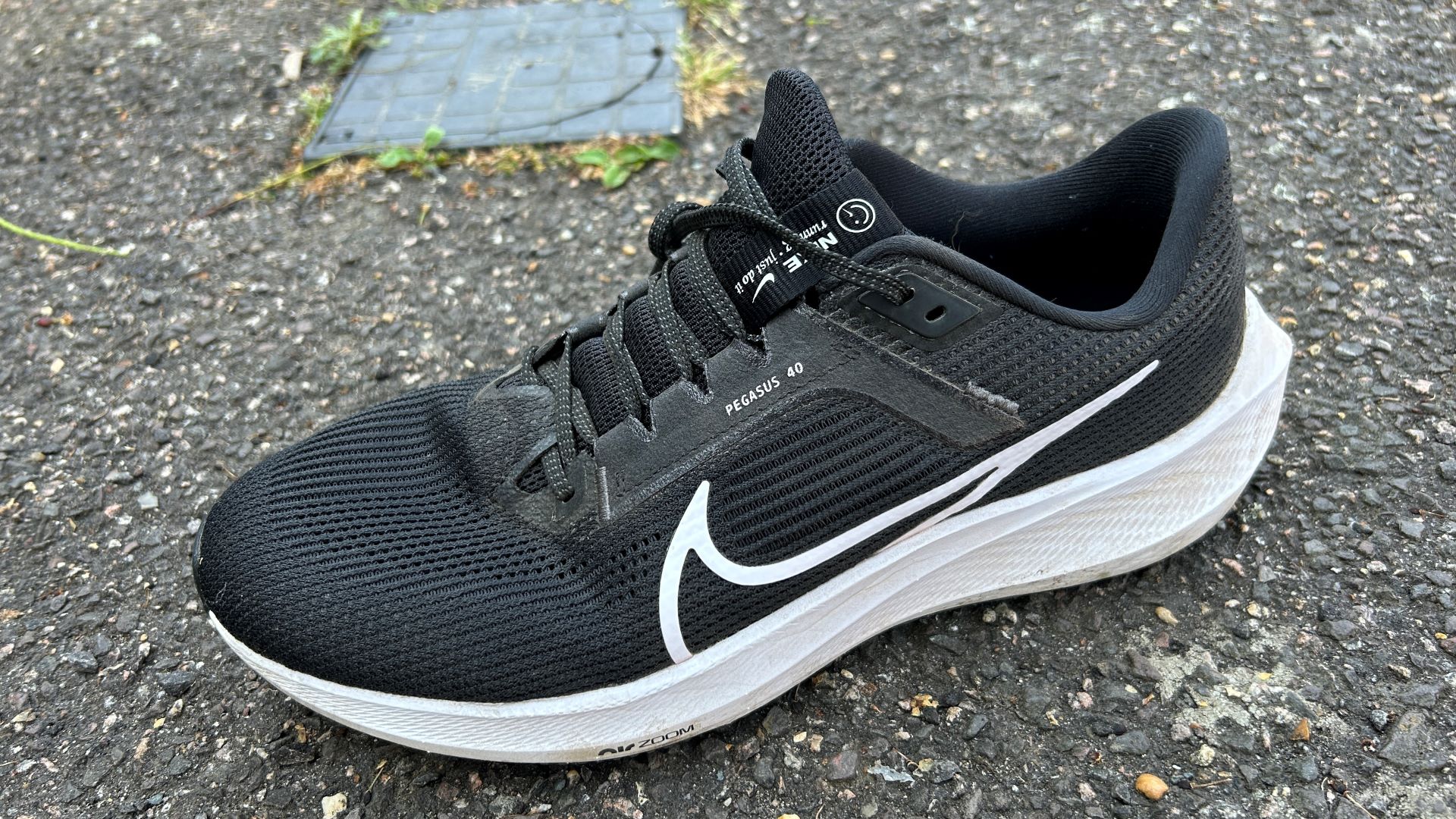
The Pegasus 40 uses the same midsole materials as the Pegasus 39, with React foam encasing two Zoom Air units, one under the forefoot and one under the heel. React foam is pretty comfortable and very durable, but delivers a fairly dull ride, which is why Nike added the Air pods to bring a little more bounce to the Pegasus.
It takes a couple of runs for the shoe to break in before you start feeling the pods underfoot, and even once you do the Pegasus 40 is not the most exciting or springy shoe, but the balanced ride works well for runs of different types and it’s also naturally quite stable, because the foam is not very squishy.
With a stack height of 33mm at the heel and a 10mm drop for a stack of 23mm in the forefoot, the Pegasus 40 has a traditional feel to it. It’s not a max-cushioned shoe like the Nike Invincible 3 or Asics Gel-Nimbus 25, but has enough foam underfoot to protect the legs on longer runs, while being a bit lighter and nimbler than those max-stack shoes for faster efforts.
At 10.3oz/292g it’s not a lightweight shoe, and this reduces its appeal for faster training, but it can still handle interval runs and tempo sessions, and the balance of cushioning and weight is good for longer events like marathons if you’re a newer runner yet to dip your toe into the world of carbon plate running shoes like the Nike Vaporfly.
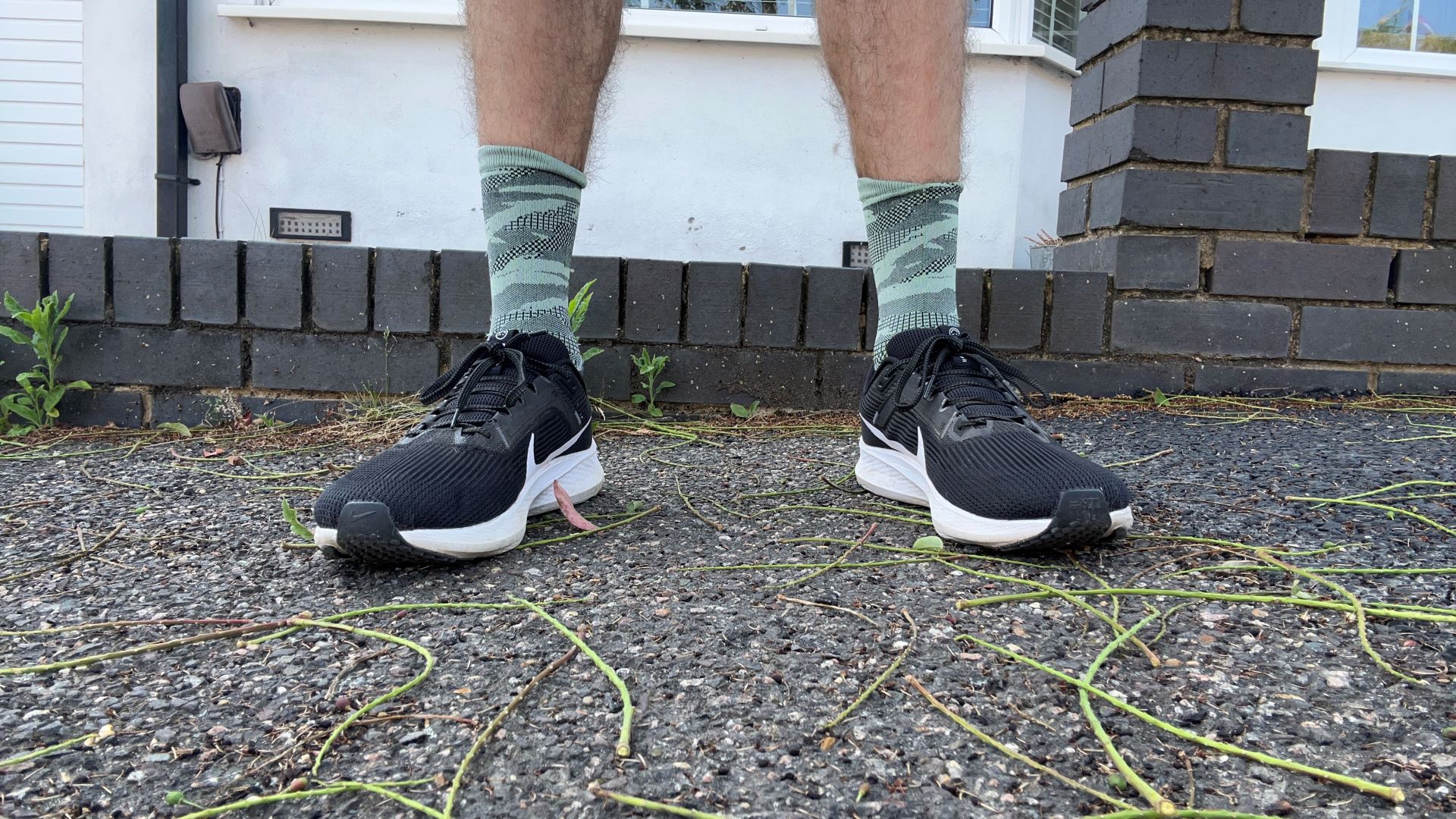
Nike Pegasus 40: Design and upper
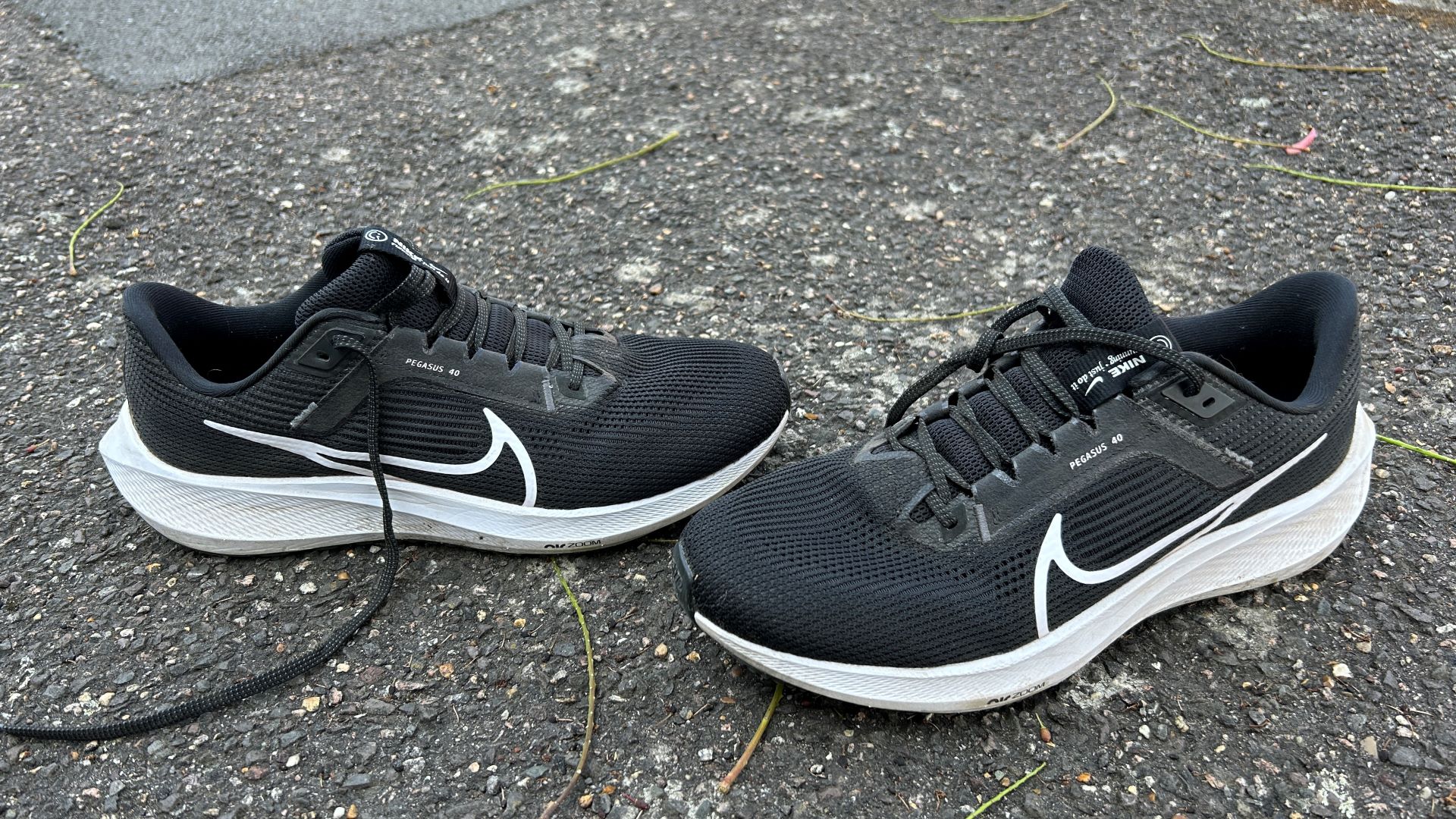
The main changes Nike made to the Pegasus 40 are all in the upper, which is a single layer of mesh with generous padding around the heel and tongue to improve step-in comfort.
Nike has reworked the midfoot of the shoe to use a more traditional lacing system than the ‘Flywire’ loops used on the Pegasus 39. Nike has also changed the inner lining on the shoe to allow a bit more give in areas like the toes, heel and arch, as well as being more breathable in those areas.
Truth be told we didn’t really notice the changes in the upper, though we’ve yet to run in very hot conditions in the shoe where the extra breathability might be welcome. The Pegasus 40 fit us well in our normal size, and is reasonably spacious so should work well for those with wide feet, but that is also the case with the Pegasus 39.
At the time of writing the men’s Pegasus comes in eight colors and the women’s five colors. New colors will be released regularly and you can also design your own Pegasus 40 using the Nike ‘By You’ option.
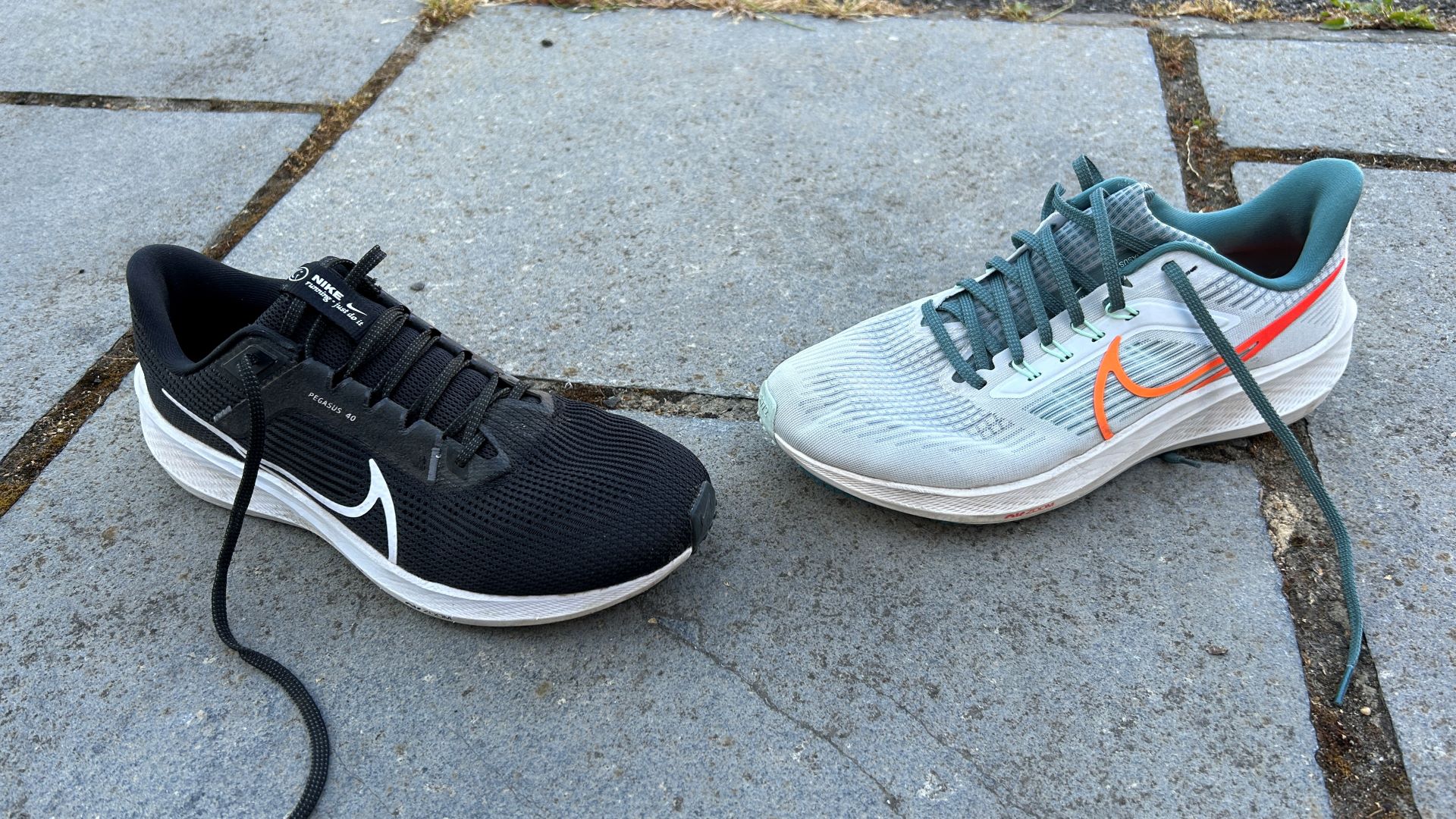
Nike Pegasus 40: Outsole
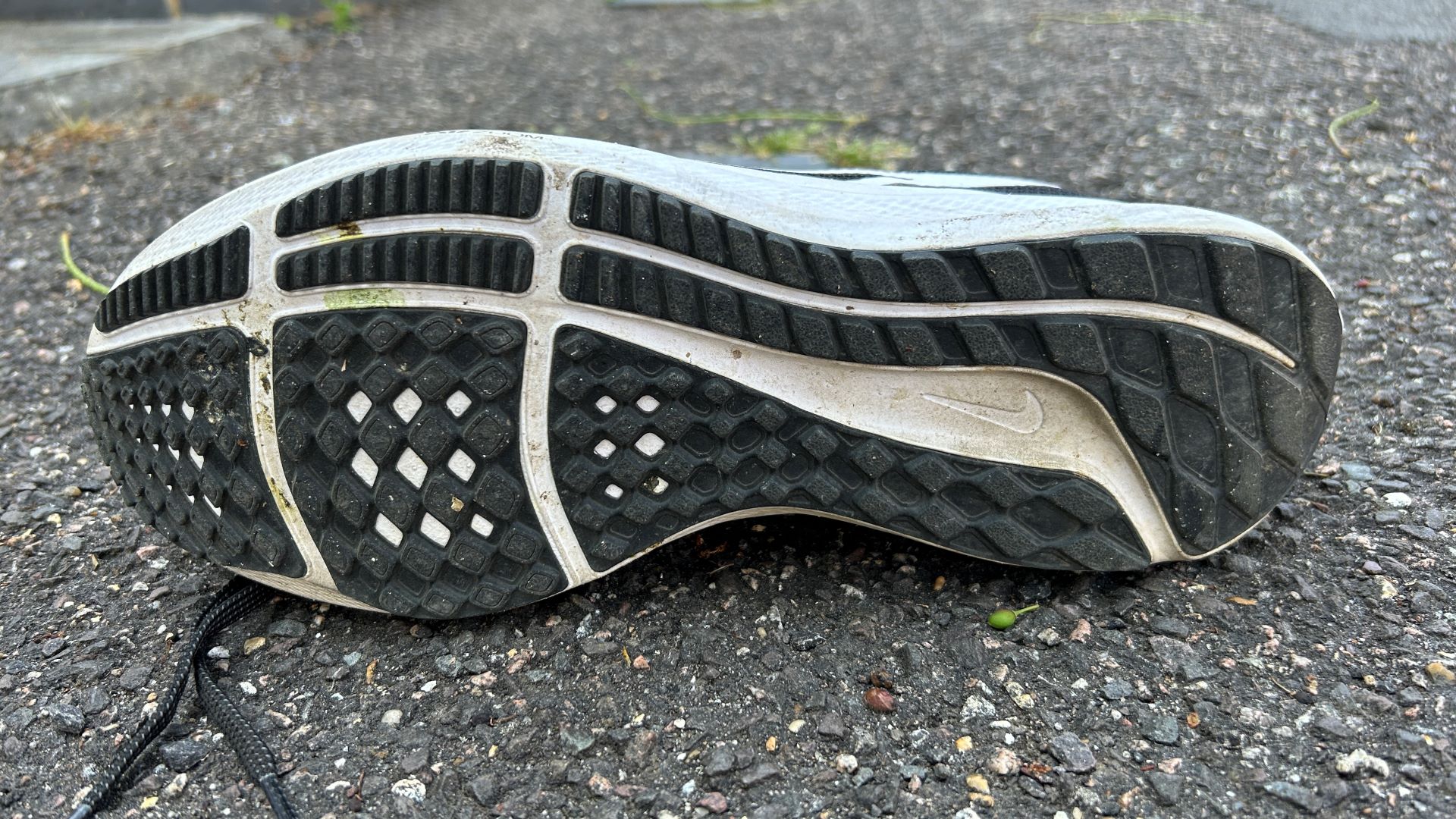
The outsole on the Pegasus 40 has a waffle-inspired pattern and the thick rubber used covers most of the bottom of the shoe. It’s an excellent outsole, providing reliable grip on wet and dry roads and being suitable for light trails as well, and it has also proved durable for us with past versions of the Pegasus.
Nike Pegasus 40: Performance
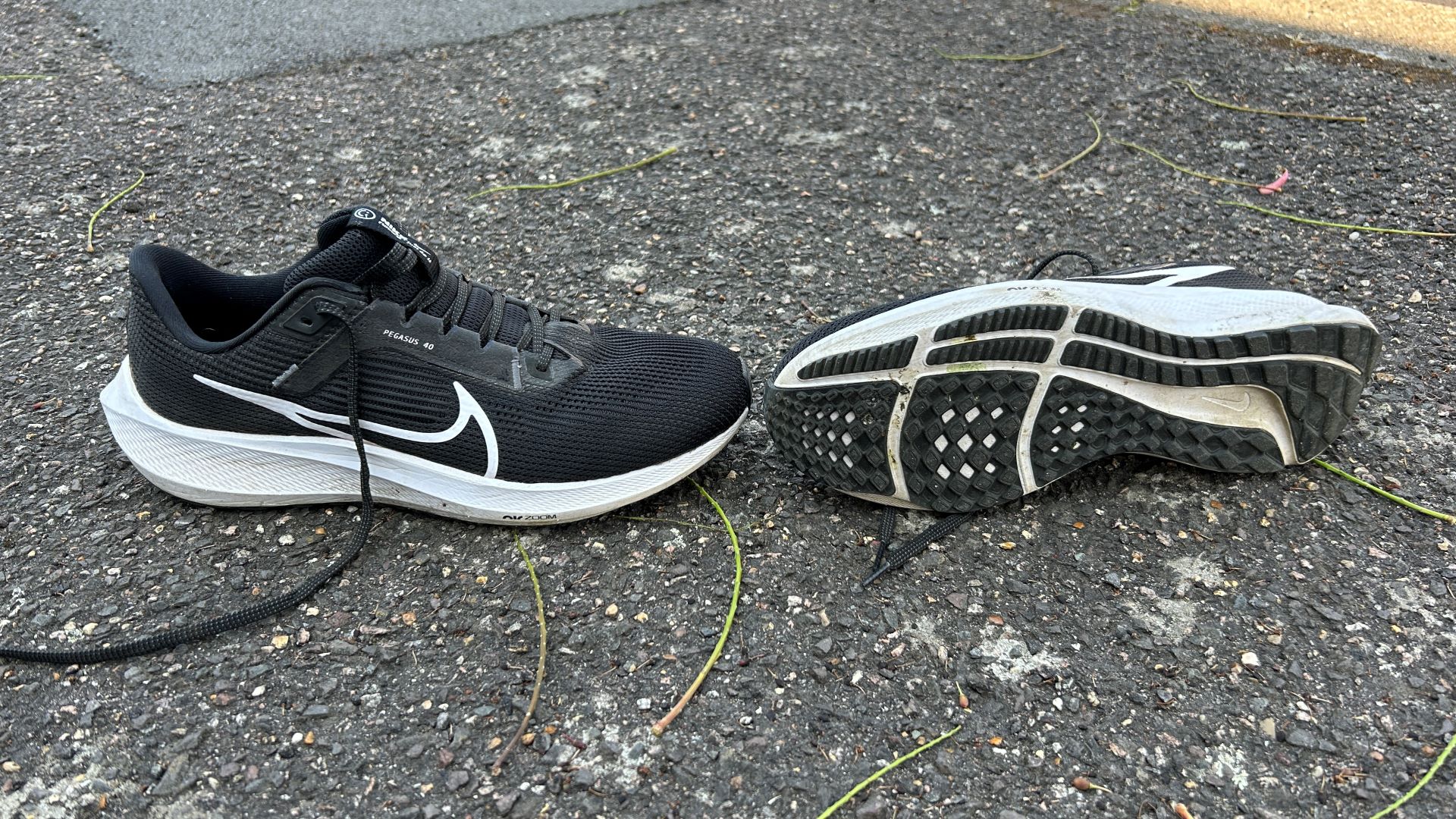
The Nike Pegasus 39 was the best Pegasus we’d tested in years, and so the fact the Pegasus 40 sticks closely to that formula is largely a good thing. The shoe is versatile, being comfortable for long easy runs while also being speedy enough to use for fast running, even if more experienced runners will probably prefer to have a more speed-focused shoe for their sessions.
When it comes to faster runs the Pegasus 40 doesn’t deliver the same propulsive feel as training shoes that use a plate, or a more aggressive rocker design, like the Saucony Endorphin Speed 3. It’s a good all-rounder, but the Pegasus 40 does steer more towards easy runs.
One extra string to the Pegasus 40’s bow compared to many road shoes is the fact it’s a good light trail shoe, because of its outsole and the fact it’s not as soft and high as shoes like the Nike Invincible 3, which are unstable when off-road. The Pegasus 40 grips well on park paths and canal towpaths when you do want to run on a mix of road and trail.
Should you buy the Nike Pegasus 40?
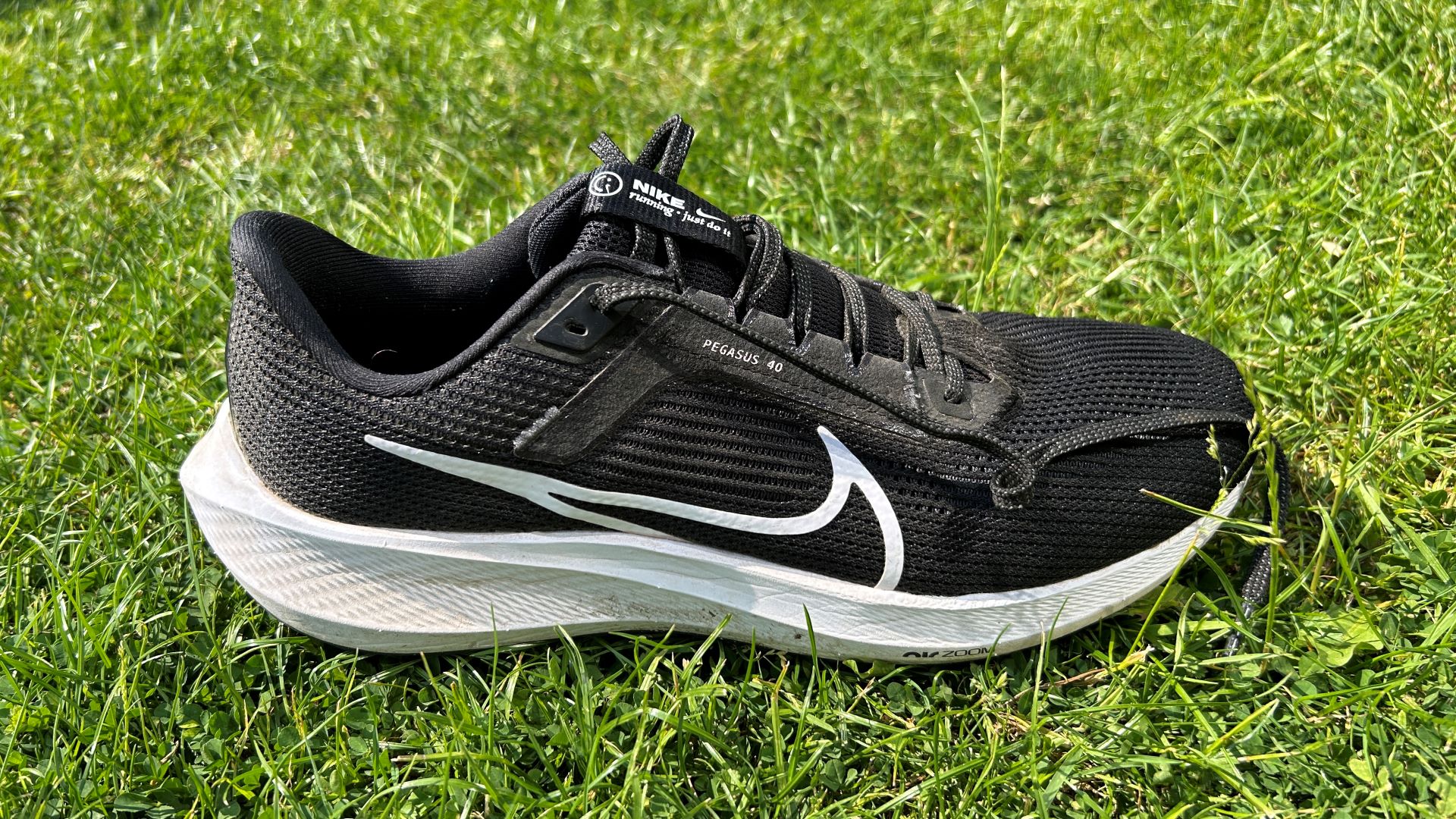
The Nike Pegasus 40 is a great running shoe that will work as an all-rounder for many runners, though the more experienced person with a running shoe rotation might find it fits best as daily trainer for easy runs, rather than speed.
It’s pretty good value (and often in sales) and it’s a shoe that’s unlikely to disappoint, even if it doesn’t necessarily thrill you. The main concern we have with it is that it doesn’t really improve upon the Pegasus 39, so if you already have that shoe or find it in a sale, that’s probably the main reason not to get the Pegasus 40.
Nike Pegasus 40: User reviews
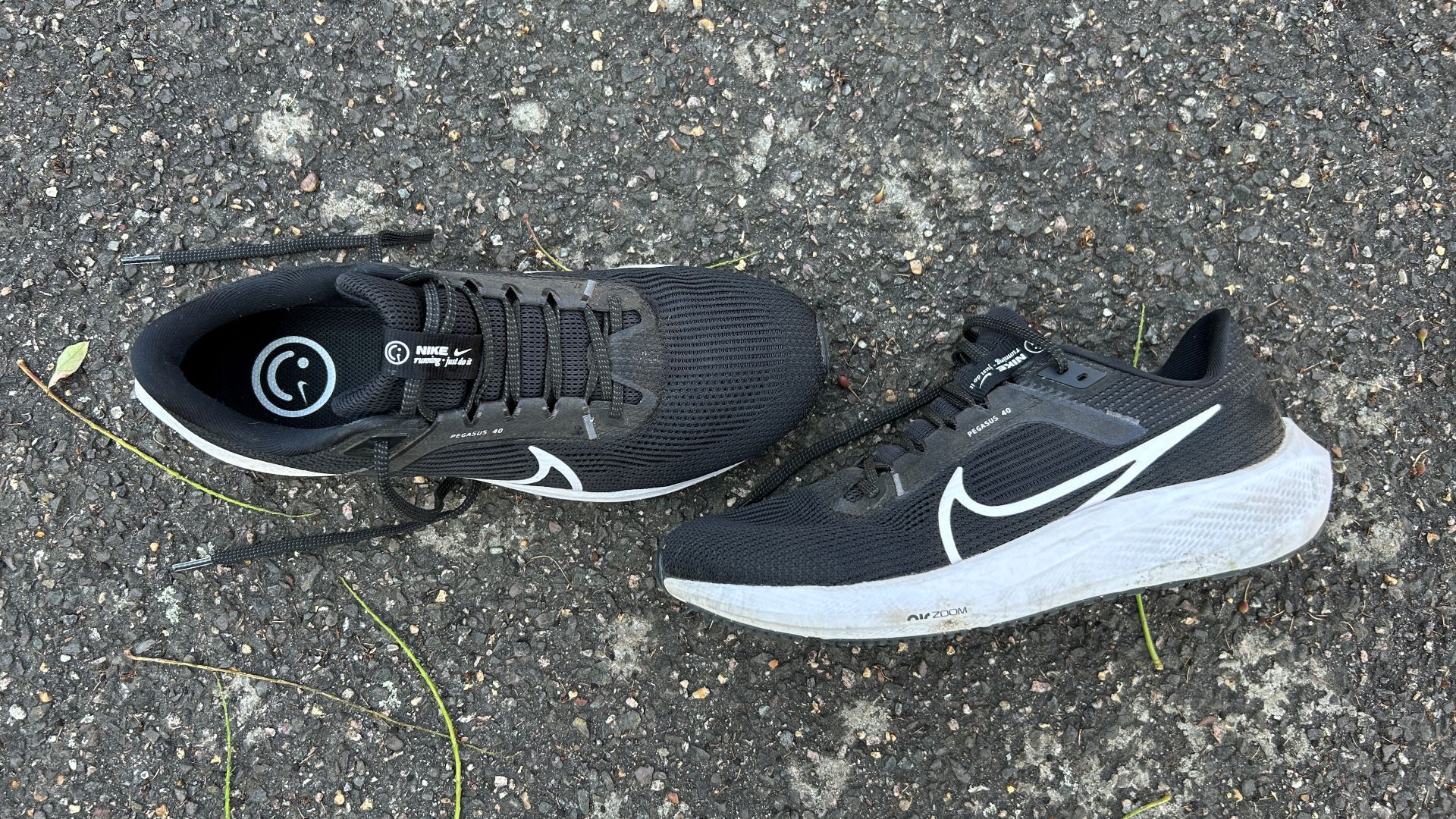
The Pegasus 40 has an average rating of 4.7/5 on the Nike website based on 137 user reviews. Many reviews commented on how comfortable the shoe is, as well as praising its durability. Users also mentioned the breathability of the upper, and loved the design of the shoe, which looks good when not running as well.
Nike Pegasus 40: Alternatives
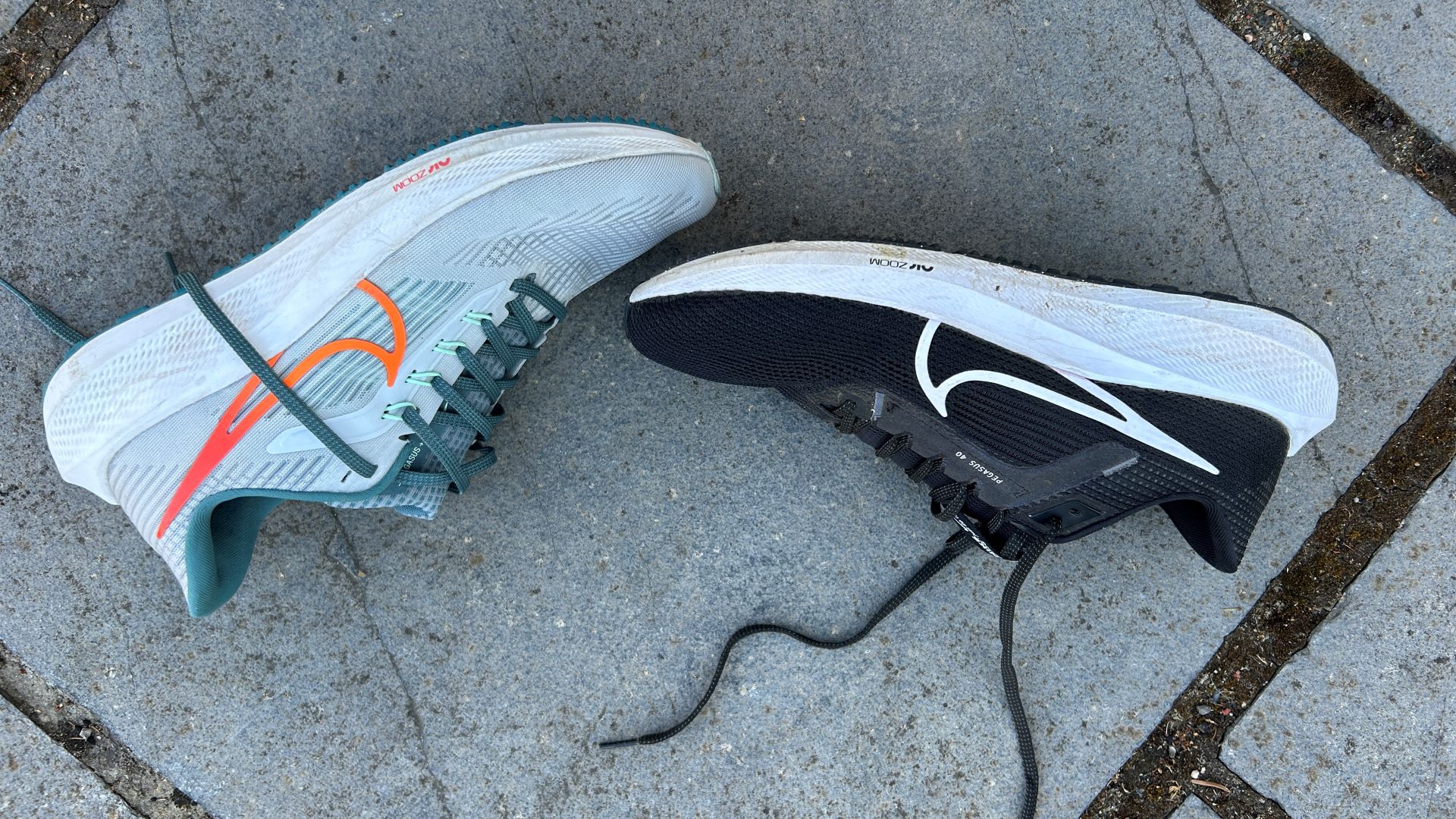
As mentioned above the Nike Pegasus 39 is a good alternative to the Pegasus 40, while those who want more cushioning might prefer the squishy Nike Invincible 3. The Puma Velocity Nitro 2 is a strong alternative that’s cheaper than the Pegasus 40, while being lighter, softer and having an even better outsole. Another good cushioned daily trainer to consider is the On Cloudsurfer 7, which has a fantastically smooth and comfortable ride for easy runs, but it is more expensive than the Pegasus 40.

Nick Harris-Fry is a health and fitness journalist who has been writing for Future brands such as Coach and Live Science since 2015. Nick is an avid runner, covering 70-110km a week, which gives him the chance to indulge his other passion—testing new gear, including a wide range of the best running shoes.
New QPU benchmark will show when quantum computers surpass existing computing capabilities, scientists say
Pair of 'glowing' lava lakes spotted on Africa's most active volcanoes as they erupt simultaneously — Earth from space
Simple blood test could reveal likelihood of deadly skin cancer returning, study suggests
